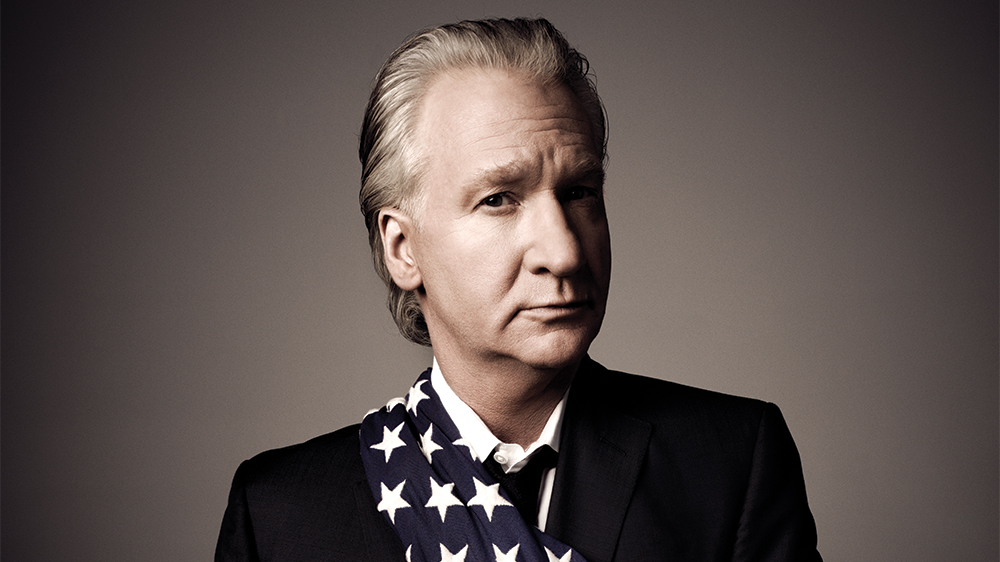
Bill Maher will soon be operating by some “New Rules” — and not just the ones he makes up in the signature segment of his HBO program.
The comedian and commentator plans to re-start production of “Real Time” on HBO without writers, the first of TV’s phalanx of late-night hosts to try and do so despite the continuing Hollywood strikes by the WGA and SAG-AFTRA.
“Real Time is coming back, unfortunately, sans writers or writing.” Maher said on social media Wednesday night. “It has been five months, and it is time to bring people back to work. The writers have important issues that I sympathize with, and hope they are addressed to their satisfaction, but they are not the only people with issues, problems, and concerns.” All of TV’s late-night shows, ranging from NBC’s “Saturday Night Live” to Comedy Central’s “The Daily Show,” have gone dark since the writers went on strike earlier this year.
Maher is likely to draw some ire. Drew Barrymore has started production on her daytime talk show and writers and others picketed the New York production.
The Writers Guild of America, West shared a statement on “Real Time” returning to the air: “Bill Maher’s decision to go back on the air while his Guild is on strike is disappointing. If he goes forward with his plan, he needs to honor more than ‘the spirit of the strike.’ Bill Maher is obligated as a WGA member to follow the strike rules and not perform any writing services. It is difficult to imagine how ‘Real Time With Bill Maher’ can go forward without a violation of WGA strike rules taking place. WGA will be picketing this show.”
An HBO spokesperson could not be reached immediately for comment, nor could Sheila Griffiths, one of Maher’s longtime executive producers on “Real Time.”
Maher said the version of “Real Time” he does without writers will be significantly different than the show’s typical format. “I will honor the spirit of the strike by not doing a monologue, desk piece, New Rules or editorial, the written pieces that I am so proud of on Real Time. And I’ll say it upfront to the audience: the show I will be doing without my writers will not be as good as our normal show, full stop,” he said. “But the heart of the show is an off-the-cuff panel discussion that aims to cut through the bullshit and predictable partisanship, and that will continue. The show will not disappoint.”
He also indicated he felt the show had to go on, no matter who would be able to participate. “I love my writers, I am one of them, but I’m not prepared to lose an entire year and see so many below-the-line people suffer so much,” he said.
The WGA strike has foiled many TV networks’ late-night plans. CBS had hoped to launch a new show at 12:30 a.m. this fall to replace the departing James Corden. The strike has altered that timetable as well, according to people familiar with the matter. In place of a companion to Stephen Colbert’s program, CBS has tapped “Comics Unleashed,” a collection of stand-up routines produced by entrepreneur Byron Allen’s Allen Media Group on a short-term basis. Comedy Central, which had been testing a wide variety of hosts to succeed Trevor Noah on “Daily Show,” has scuttled those efforts, even though comedian Hasan Minhaj is seen as a leading candidate for the role.
TV’s late-night programs continue to generate discussion and the threads of popular culture. But the longer shows like NBC’s “Saturday Night Live” and ABC’s “Jimmy Kimmel Live” remain dark, the more risk there is of viewers in the era of streaming video making permanent changes to their consumption habits. In 2018, seven late night programs — NBC’s “Tonight” and “Late Night,” CBS’ “Late Show” and “Late Late Show,” ABC’s “Jimmy Kimmel Live,” Comedy Central’s “Daily Show” and NBC’s “Saturday Night Live” — drew more than $698 million in advertising in 2018, according to Vivvix, a tracker of ad spending. By 2022, that total came to $412.7 million — a drop of approximately 41% over five years.
Some of the hosts have seemed eager to get back to their wee-hours antics. Jimmy Fallon, Seth Meyers. Stephen Colbert, Jimmy Kimmel and John Oliver have banded together to produce a podcast in hopes of donating any revenues it generates to their out-of-work crews.
The strike scuttled production of “Real Time” in the midst of the series’ 21st season. “Real Time” debuted on HBO in 2003. It incorporates some elements of Maher’s previous program, “Politically Incorrect,” which ran on both Comedy Central and ABC.











